Support strong Canadian climate journalism for 2025
Haisla Nation Chief Councillor Crystal Smith has been called a "traitor" and faced threats on social media, warned not to go anywhere alone at a recent First Nation sporting event.
Smith says she comes from “a long, long line of strong female leaders” in the matriarchal Haisla Nation and has the support of her community against threats, most from outside of Kitamaat Village, B.C. in the Pacific Northwest. The promise of a brighter future keeps her going. She’s never been prouder to be a Haisla Nation member.
The attacks stem from the Haisla Nation signing mutual benefit agreements in 2018 with LNG Canada and Coastal GasLink. Coastal GasLink is the name of the pipeline project that would feed natural gas to an LNG Canada facility, within Haisla territory, where it would be liquefied and shipped overseas. It’s a partnership that will provide extensive economic benefits to the tiny coastal tribe of 1,800 with 800 living on reserve.
She reads all the criticism and said rumours about her sleeping with the CEO of the project are insulting. “I had friends that I’ve known for many years that didn’t look at me or ask, ‘Hey, how’s it going.’ When it comes to having outside criticism, it’s lateral violence. It’s downright nasty and mean.”
Smith's support for the project is deeply personal
Smith feels the motivation for Haisla support of the liquified natural gas project on a deeply personal level.
About 20 minutes into an interview with National Observer, she let her guard down, and through tears, shared a devastating story of loss.
Six years ago, not long after she was first elected to a councillor position at the Haisla Nation, her common-law husband, father of her two daughters, committed suicide. She said that there was a lack of support services available to her family following his death and that this made it even more difficult to cope.
“I’m heavily invested in this,” Smith said. “I don’t want another family in our community or any other First Nations community to experience what my girls and I have,” she said between deep breaths and tears streaming down her cheeks.
A hint of anger rose in her voice as she spoke about the need to fill gaps where governments have left the Haisla to suffer.
“Others expect us to do the same thing repeatedly and expect different results? That our community will be taken care of by government funding when we needed something yesterday for our people?”
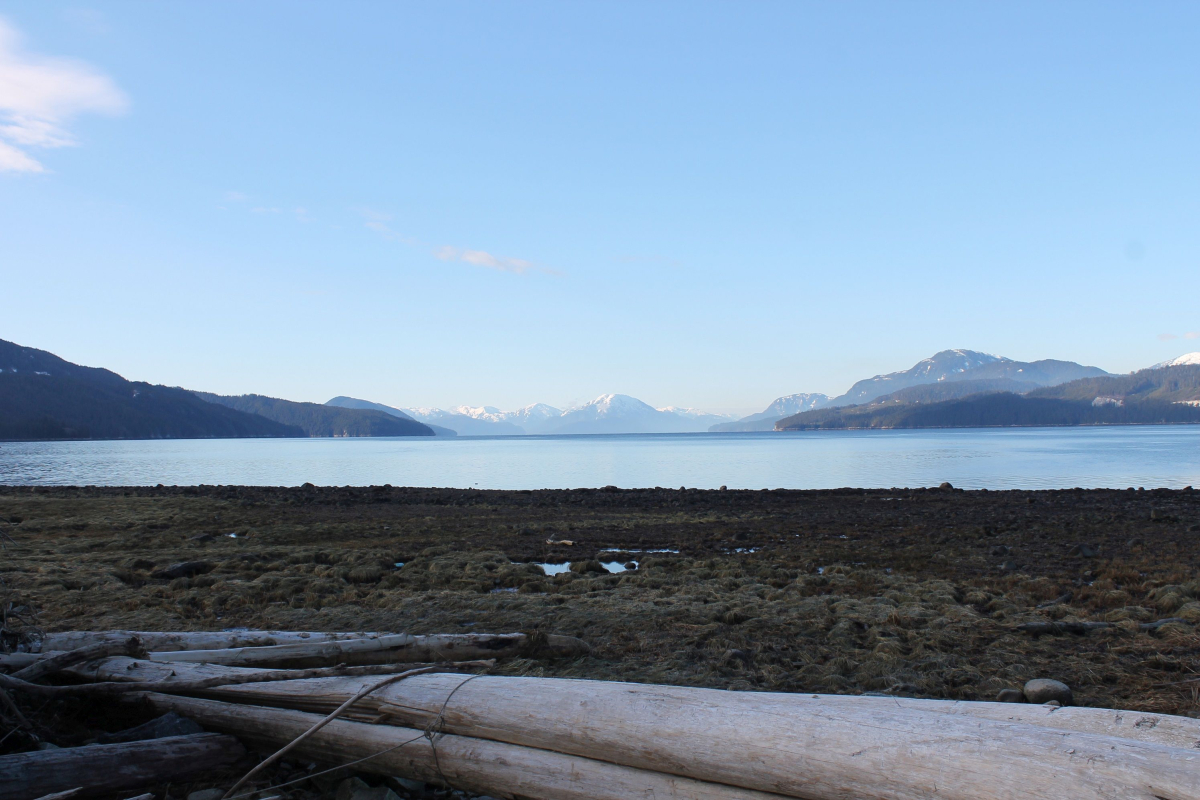
Breathtaking landscape by the sea
Haisla means the “Dwellers Down River” in the Wakashan language family of the Northwest Coast tribal area. The small reserve is located at the end of the Douglas Channel that extends from the Pacific Ocean. It’s a breathtaking landscape nestled under snow-capped mountains with the smell of fresh, salty ocean air.
It's probable that you would witness a bald eagle or a mother bear guiding her cub to the water’s edge to fish here. The Haisla live in Kitamaat Village on a reserve just south of the town of Kitimat. Blackfish, killer whales, humpback whales, sea lions, salmon, and other species of fish like the ooligan, a Haisla diet staple, thrive here.
The main industries that have sustained the area for years are fishing and logging. It is known for world-class fishing experience and pristine natural environment.
There is just one public beach on the ocean with local access and it’s owned by the Rio Tinto corporation. In fact, most of the waterfront area is occupied by industry, LNG Canada among them. It is building an export facility there to accommodate the 670-kilometre Coastal GasLink pipeline that will carry natural gas from Dawson Creek, B.C., for processing and shipping to Asian buyers.
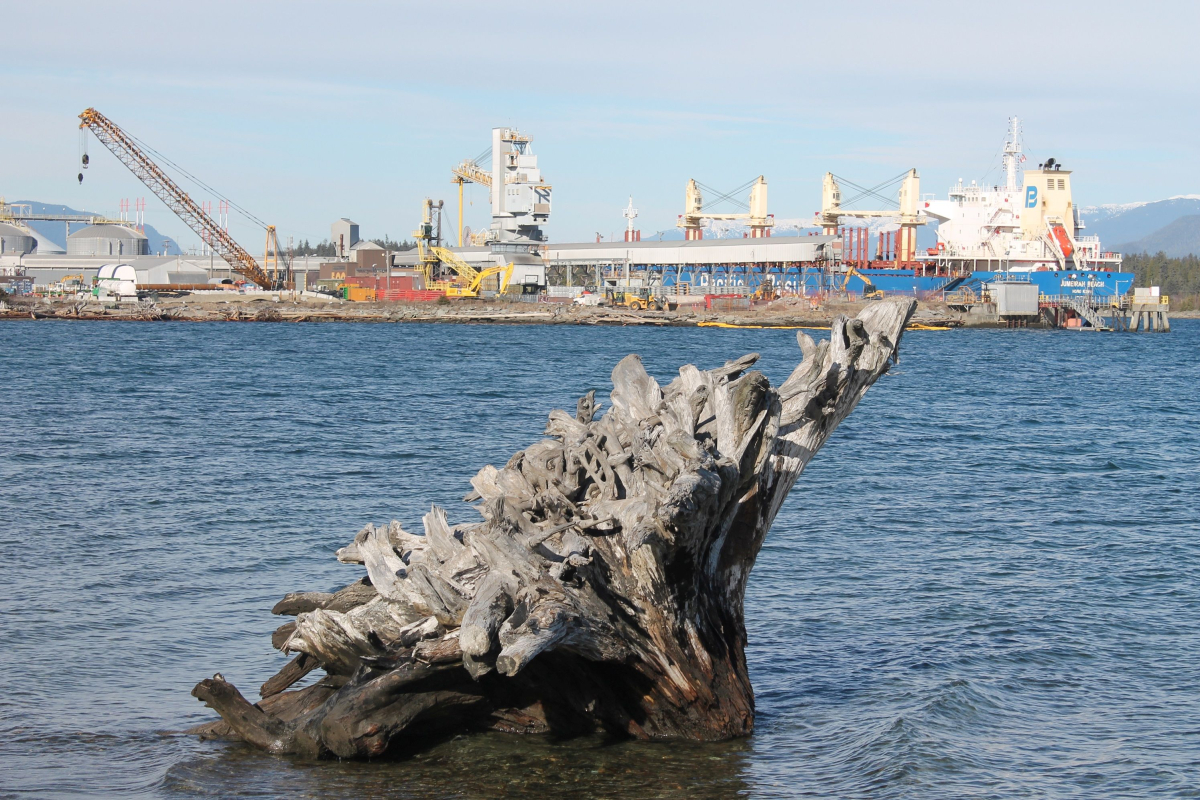
The Haisla are working with the companies to build a processing plant of their own called Cedar LNG.
The Haisla aren’t worried about the potential threats to the water, marine life or other environmental effects like many opponents of the project. Smith said they’ve done their due diligence. Following years of negotiations and 86 meetings with Coastal Gas Link, the Haisla decided to get on board. Twenty First Nations have signed project agreements with Coastal GasLink.
“It was CGL’s approach and the relationship building,” Smith said. “They recognized that when doing a project, it’s going to take the community. And it was the respect in terms of our knowledge being implemented. We’ve been here for thousands of years and know significant areas within our territory and what’s acceptable and what’s not during certain times of the season. I don’t want to sugar coat it. It has been difficult, but we’ve worked through it with them. It took a long time in order to get them to take our expertise, knowledge and apply it to their work in an acceptable manner.”
The Haisla haven’t abandoned their traditional ways of life and work and using the rich resources of the land and water. The protection of Haisla territory is taken seriously, said Smith. “We work to protect our environment, to protect our territory. We’ve actually been able to enhance some of our environment protections through this process.”

Minimal environmental impacts expected
Haisla Nation member Candice Wilson, an environmental scientist employed by the nation, echoed Smith’s comments. Wilson fell in love with learning about the intricate ways of the lands and waters after attending a rediscovery cultural camp as a teenager. They canoed down the channel to an island that her ancestors once used.
“I spent two weeks out on the land. The connection there is pretty spiritual, it’s a special place,” Wilson said in an interview with National Observer. “A lot of our culture revolves around our resources and how we use them. We process salmon a certain way. We render oil out of ooligan. When we sit at the technical tables and raise our issues with LNG it mostly revolves around traditional use.”
Passionate about the environment and protecting her homelands while also having expertise on the matter, Wilson is confident that Haisla territory will experience minimal environmental impacts.
“We also have our people working out on the land with CGL. One of our community members will oversee the work on the ground. We’ll get updates not only from the company, but updates from one of our members,” she said.
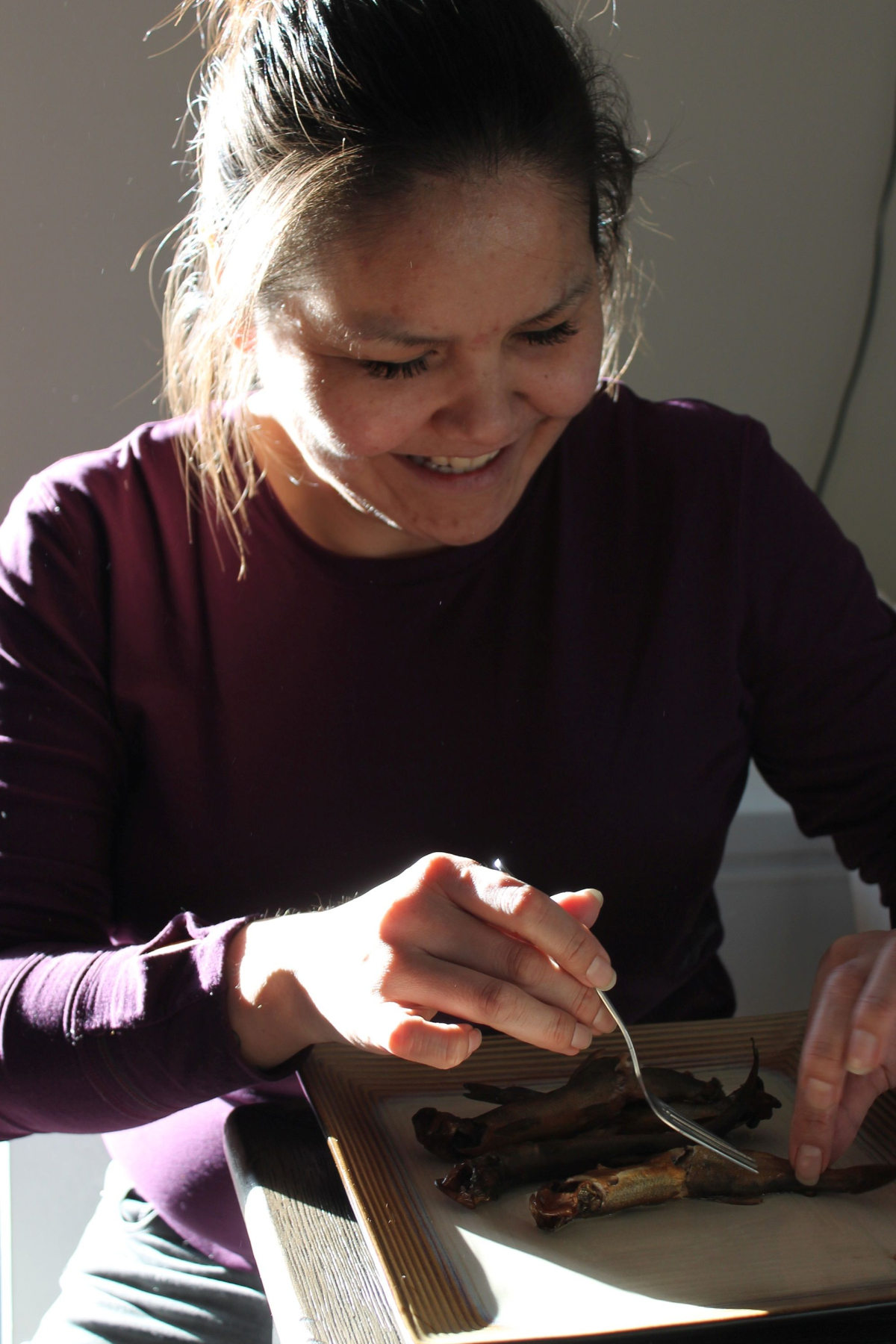
However, she is concerned about the impacts of increased carbon emissions from processing plants and tankers once the project is operating. Currently, she’s researching how the Haisla will remediate the emissions when they come.
“We are working on developing innovative ways on how to deal with it. And mitigations, raising them with industry. We are managing the impacts, yes they’re there. But industry and our natural environment can coexist. I don’t think a lot of people understand that. It can be done,” she said.
Haisla Nation is already reaping the benefits of the Coastal GasLink and LNG Canada partnership. An elders’ centre built five years ago provides a meals-on-wheels type of program. Youth programming is abundant and an unprecedented number of Haisla members are enrolled in post-secondary schools. There is a full-time cultural coordinator who oversees culture and language revitalization that provides resources to members living off reserve as well.
Pride in managing wealth instead of poverty
Industry has helped the Haisla restore hope where government funding fell short. Smith said she is proud that she is now managing wealth instead of poverty in Haisla Nation.
“To see the changes in each individual and their self-identity is impactful,” said Smith, who retold stories of success from community members. Some members have obtained mortgages for the first time; others own two vehicles, a rarity in the past. Some members are traveling the world for the first time, taking holidays with their hard-earned money provided by jobs in industry.
“These are role models to our younger generations that there’s much more to life beyond the reserve boundaries,” she said.
All of the success is owed to the Coastal GasLink and LNG Canada partnership, she added. More so, it’s the Haisla asserting Indigenous rights and title and their right to say ‘yes’ to development that needs to be emphasized.
“We’ve utilized our rights and titles to be active partners in this project. We’re not at the side. We’re sitting at the tables on so many levels within this project right from the beginning. And it’s to the benefit of our people. For others to criticize us in a manner that demeans the work that we’ve done is patronizing.”
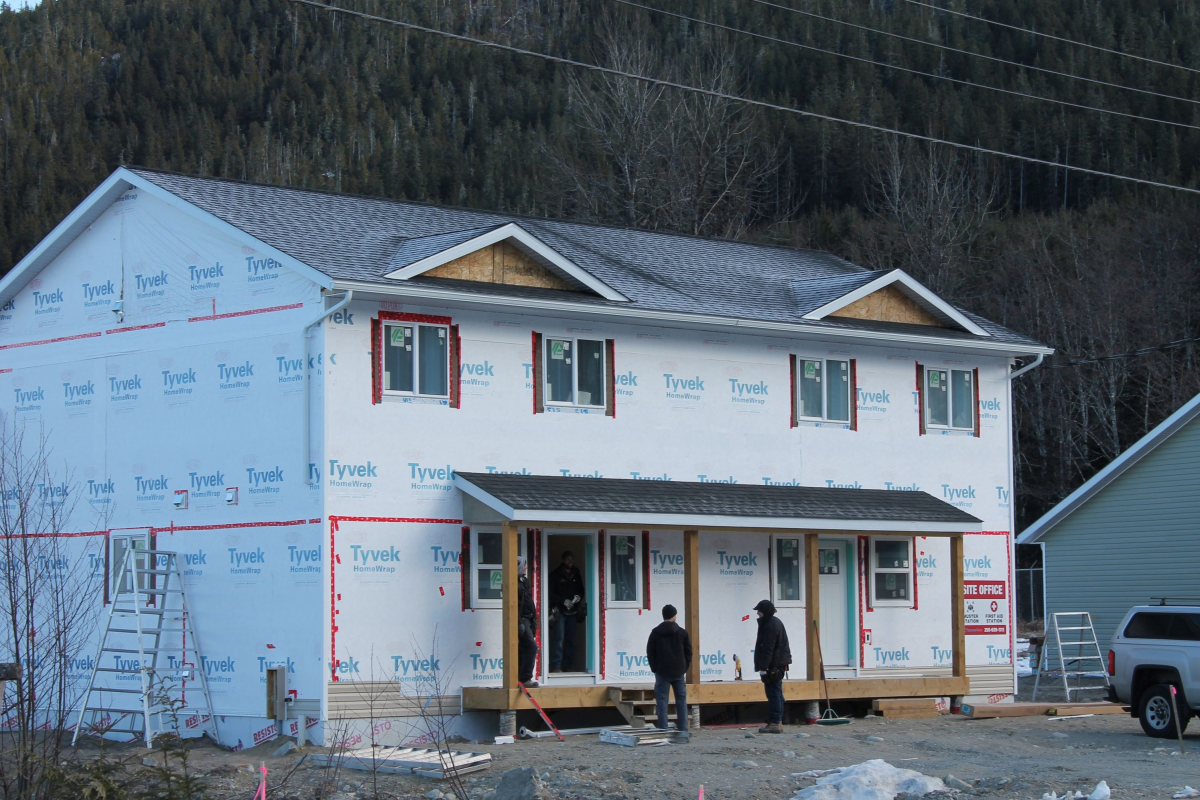
There is no “us against them” mindset when it comes to dealing with industry for the Haisla. Instead, it’s been other First Nations and opponents of the pipeline project against the Haisla. It disappoints Smith but motivates her to keep standing tall for her people.
The Haisla are grounded in the ‘Nuuyum’ cultural way of life that has been passed down for hundreds of generations. “Our Nuuyum law says you would not spit in the face of somebody that spits in yours. That you walk away,” explained Smith.
The Haisla are united and set to succeed
Her confidence comes from having the backing of her community. She remembers the teachings of her late grandmother who was a matriarchal leader of the Haisla Eagle Clan.
“I come from a long, long line of strong female leaders in my entire family. When I think about the hereditary culture, being proud of what I grew up with and learning from my grandmother about respect. Never to look down on anybody. I hold true to that in terms of the leadership that we have here that sit around the tables with us.”
The Haisla are united and set to succeed now, she added. While shedding the harms of colonialism, the residential school system, 60’s Scoop and ongoing oppression, Smith is excited for the future. Excited for the healing for her and her daughters from the trauma of their loss.
“My girls' lives are going to be so different because of all this opportunity. The education aspect alone. We don’t have restrictions for our people. None.”
This is one in a series of stories by reporter Brandi Morin from four of the 20 First Nation communities with agreements allowing the Coastal GasLink pipeline and liquefied natural gas project on their territory.
Editor's note: This article was updated on June 3, 2019 with changes to a section in order to remove some information that was considered to be personal in nature.





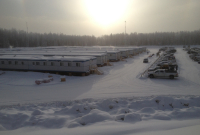
Comments
You miss the whole point in this story. It's about the fact that this is all going to be 'fracked' gas-- and it's dirtier than coal when it comes to environmental impacts and greenhouse gas emissions.
I believe that ALL gas, not just that sourced by fracking, is worse than coal. If more than about 3% of it leaks, anywhere on the whole trip from underground to your furnace or power-plant, then the climate damage is as bad as with coal - and it's hard to believe only 3% of it leaks.
However, I do NOT believe that the way to decarbonize (and, umm, de-methane-ize ?) is to suppress the production end. That sure did not work with drugs! The drug-prohibition experience says you could actually make methane an illegal substance and most of it would still get through to consumers. Nope, we have to suppress fossil fuels at the consumption end by providing non-fossil alternatives.
So I applaud this nation, and encourage them to show leadership as was written about here in the NO about the Haida of Skidegate:
https://www.nationalobserver.com/2018/04/09/brighter-news-clean-energy-…
and elsewhere about the Heiltsuk:
https://www.vancouverisawesome.com/2018/06/27/heiltsuk-first-nation-hea…
and the Beecher Bay Band:
https://www.watercanada.net/b-c-first-nation-to-heat-town-using-ocean-t…
Canada's First Nations communities have a classic case of lemons that can become lemonade: because they live in remote communities that do not have good access to power from the usual large commercial power plants, they have extremely expensive electricity costs, and often must use unsafe, unhealthy heating for their homes; that's the lemons. The lemonade is that they are the perfect real-world test beds for alternative, clean energy technologies, and the above three nations are doing important R&D work, not just serving their own communities. These projects can serve as guideposts for a thousand more communities to follow. This work is far more important to fighting climate change than preventing one source of fossil from being developed, which will only be quite certainly replaced by another in Indonesia or the Middle East. Being able to say, "well at least it's not US ending the world" is cold comfort if the world still ends.
We need to get off fossil fuels period. There are better ways that protect our health and the environment. It is the alternative energy companies that the HAISLA FN,s must be working with not multi national O&G companies who will surely at some point let them down.